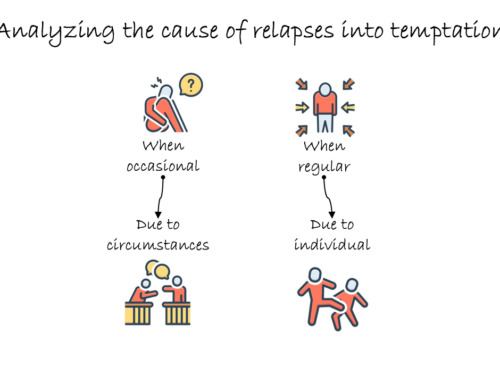Ours is an action-oriented culture; we like to be on the move.
Of course, action is desirable and essential.But action-centeredness can make us forget that pause is also an action. In fact,pause is the best action when temptations for anti-devotional pleasures allure us andour action-centeredness makes us act impulsively to get those pleasures.
Pertinently, the Bhagavad-gita (3.41) urges us to regulate our senses right from the beginning. Once we resolve to regulate ourselves, that resolution gives us cause to pause when we feel tempted.
However, if we see pause as inaction, as not doing the thing that we feel like doing, then pause appears unappealing, even repelling. That’s why we need to see pause positively– it is an action that is meant not to stop us from material enjoyment, but to keep us on course to spiritual fulfillment.
Such purposeful pause comprises two actions:
Change of circumstance:When a circumstanceseduces us, staying there is the recipe for disaster. Even if we can’t get out entirely, pulling ourselves out temporarily makes it easier for us to change our perspective and thereby protect ourselves.
Change of perspective:The presence of temptation often overwhelms us with the ignorant perspective that we are the body meant to enjoy at the material level. To avoid becoming thus overwhelmed, we need to return to the enlightened perspective that we are souls meant to delight at the spiritual level in loving Krishna. How can we regain this perspective? By chanting the holy names, reciting a scriptural passage, recollecting a philosophical point or any such devotional activity that connects us with the higher happiness of Krishna consciousness.
When we thus connect with Krishna and change our perspective, pause becomes the action that frees us from the trap of temptation.
Bhagavad Gita Chapter 03 Text 41
“Therefore, O Arjuna, best of the Bharatas, in the very beginning curb this great symbol of sin [lust] by regulating the senses, and slay this destroyer of knowledge and self-realization.”


Leave A Comment